What are good work habits to consider for best practice? Every one of us has habits we practice daily. These patterns can help us get more done while being more productive at the same time.
In this article, I’m going to go over why good work habits are important for success. So let’s dive into this topic.
The importance of good work habits
I consider myself to have good habits for work, but I have bad habits as well.
Reading an article, I found an excellent habits chart that can help you be more productive. BJ Fogg (Ph.D.), a Stanford University behavior scientist, has studied habits for nearly three decades.
One problem he identifies that people have is that they think “too big.” Rather than going big, Fogg suggests starting small and creating new habits.
Fogg writes in his book, Tiny Habits: The Small Changes That Change Everything:
“It’s all about baby steps…When you go tiny, you don’t need to rely on willpower or motivation. Tiny will grow bigger, just like a seed grows into a tree.”
The bigger question he still looks into is how people stick to certain practices in the long haul. Since he started studying patterns, people are likely to stick to their habits without requiring much motivation.
The habits people have are usually smaller, easy ones to start. More so, Fogg emphasizes that people need to start small rather than go big on habits.
There are 12 small habits that Fogg mentions in his book. In this post, I will go over those small habits for best practice.
- I Put My Phone On “Do Not Disturb” Mode
- I Will Organize One Item That’s Lying Around
- I Will Close The E-mail Browser Tab
- I Will Hide Other Programs Running On My Computer
- I Will Log Out
- I Will Write The Title, The Date, And The Attendees At The Top Of My Notes
- It’s Been Great To Talk, But I Need To Wrap Up. What Haven’t We Covered Yet That’s Important?
- I Will File It In A Folder For The Designated Project
- I Will Mark It Unread
- Got It. I Will Review iI In Detail And Get Back In Touch Soon
- I Will Think About One Success From The Day
- I Will Hang My Keys On The Hook
After I sit down at my desk, I put my phone on “Do Not Disturb” mode
Before, I would keep my phone nearby and grab it every few minutes or so. I knew that was a big distraction and kept me less focused.
As an iPhone user, I turn on the “Do Not Disturb” mode and put it far away when I need to stay focused. Especially with smartphones, people can get hooked on the notifications and noises coming out of them.

After I close my office door, I will organize one item that’s lying around
I’m good at managing things. But every once and a while, I tend to ignore one thing that’s not in the right place. With this easy tip, you can become more organized by moving one item, not in its place.
At least managing one thing into a better spot is better than doing nothing on a given day.
After I finish reading the e-mail, I will close the e-mail browser tab
Many people I know don’t do this. Once they go through the email, they may leave it open if a new email comes in.
I’m someone who plans to check email at a specific time (half-hour a day). Anytime outside of that, I focus on other priorities. So remember to close your email tab once done- it’s effortless!
That’s the problem: if you didn’t plan on checking your email a few minutes later, you’re taking away valuable time to get meaningful things done.
After I launch a new Word Doc, I will hide other programs running on my computer
When writing a report through a word/google doc, make sure you’re focused on creating the report. Everything else should be closed, except for notes or articles.
When I write my content posts, other things I’ll have up are notes or reports to assist in writing—no email, surfing on the internet, or absolutely no social media.
Speaking of social media, many people find themselves scrolling through social media unnecessarily. Some people tend to mindlessly scroll through social because they’re bored or want to kill time.
Maybe on a rare occasion, that’s fine, but you don’t want to make it a bad habit. So if you find yourself in this situation, it’s time to log out of social media.
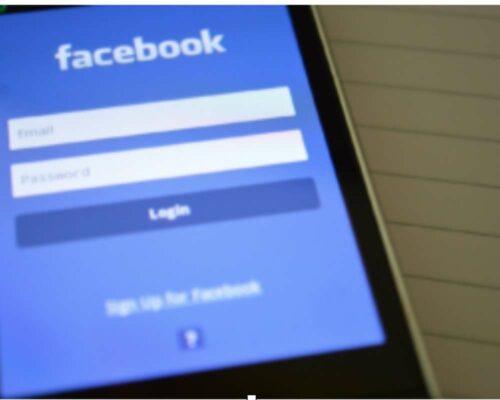
After I sit down at a meeting, I will write the title, the date, and the attendees at the top of my notes
Let’s face it: meetings can be annoying and a waste of time if not used wisely. But since they’re inevitable, you mind as well take advantage of making them meaningful.
Instead of sitting in and being reactive, be proactive whenever possible. Writing down simple things at the top of your notes means you’re going to make the most out of them.
Little things such as writing down notes can be used later. It’s an excellent way to keep things on track and hold other people accountable and yourself.

After I notice a call going on for longer than expected, I’ll say this: “It’s been great to talk, but I need to wrap up. What haven’t we covered yet that’s important?
I usually don’t talk on the phone often, but many people do every day at their jobs. If you planned a 15-minute phone call with a client but went on a half-hour, you should wrap up the call.
If it’s essential, that’s understandable. I’ve been in that situation a couple of times, and I wish I could have done better with the timing.
After I read an important email, I will file it in a folder for the designated project
Not all email is essential, but some need prioritization. If it’s related to a project, you’ll probably need to save it for future reference. Please don’t get in a bad habit of ignoring or putting it to the side.
I’ve done that before for a big project at work, which caused much frustration. If I had been more organized back then, I would have saved myself some headaches.
After I read an e-mail I can’t deal with immediately, I will mark it unread.
Now and then, there are emails I need to read right away. But if I can’t handle it at that moment, I make sure to come back to it later.
How I set up my email: I created a separate folder called “For Later.” I’ll also create folders for “Save For Tomorrow” or “Save For Next Week.” These are emails that don’t need immediate attention.
Any emails I can’t read or respond to, I will mark unread and move to the “For Later” folder. It’s much easier to do than rush through the email, especially if it’s essential.
After I read a time-sensitive e-mail, I will reply with this script: “Got it. I will review it in detail and get back in touch soon.”
This tip is a good one to keep in mind. Emails that require an immediate response keep me on high alert sometimes. I’m pressured to send a formal response, but it doesn’t have to be that way.
If you send a short reply, that’s all you need to do. I’ve gotten better at that in the last few months. It’s better to save time when you need to focus on other priorities.
After I leave the office, I will think about one success from the day
For some people, it’s not that simple because we all have our bad days. When our bad days take place, it’s more negative than positive.
However, even if it’s working on a small portion of work, it’s still a tiny form of accomplishment. If you finished the halfway mark, it’s still a success in some way or the other.
Unexpected things come up, and that can change the outcome of your day. Even though it happens, you’re not always going to get everything done. So also, if you get some work done, it’s still meaningful one way or the other.
After I walk in the door at home, I will hang my keys on the hook
It’s so simple, yet some people won’t care enough to remember. They may get distracted and forget about the small things.
But if you hang your keys on the hook, you’ll know it’ll be there the next time you head out the door. If not, they might be somewhere else (such as in the pockets of the pants you wore the day before).
Whenever I walk into my apartment, I hang my keys up right after closing my door. I keep in a spot where I can grab them before I walk out the door.
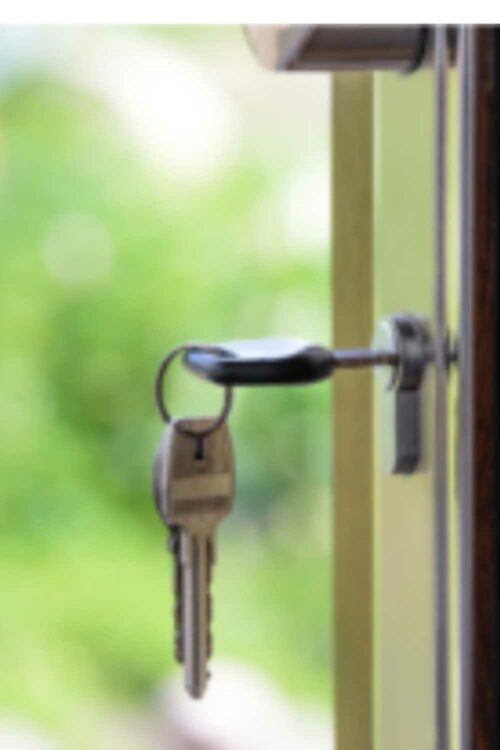
I didn’t want to end up finding my keys the next day, and all of a sudden, I wasted several minutes and ran late to work.
That scenario happens to many people, and it’s very frustrating. So don’t be one of those people. Leave your belongings in a secure spot to remember where it’s located.
Final Words
Overall, these twelve habits are some of the best ones to practice. Even though they seem small and simple to do, the key is to stick to these habits.
One other thing Fogg mentions is to celebrate after completing a new habit. Even if it’s a small one, it’s good to reward yourself after making an effort at it.
It takes time to become accustomed to a new habit. After practicing for a while, you’ll get the hang of it.
Your Turn: Which habits do you like?
Which of the habits mentioned earlier are you willing to practice?
Feel free to provide feedback by leaving a comment below. I look forward to reading your thoughts, and I’ll respond back promptly.
If you got value from this article, please bookmark this website to visit later for new posts every week. Spread the word to others. Sharing is caring! To get more of this type of content, you won't want to miss out my daily email letters. These are worth some golden nuggets and best tips to help you in your business. Sign up today! Count me in on the daily letters via email! For the latest videos that come out every week, subscribe to the YouTube channel. Also, be sure to check out our new space on Twitter X! YouTube Twitter (X) Medium Profile
Eric is the owner and chief editor of notimekillers.com. He takes great pride in helping people manage their time and grow their businesses. Eric is a firm believer in financial and time freedom, as he believes in financial independence and taking ownership of your time. “Time is your most important asset. It can be your best friend or worst enemy. How you use your time can shape the future you desire to have.” In his leisure time, Eric loves to write and read whenever possible. He enjoys going for long walks outdoors while doing in-home workout videos every week. You can also connect with Eric via LinkedIn.

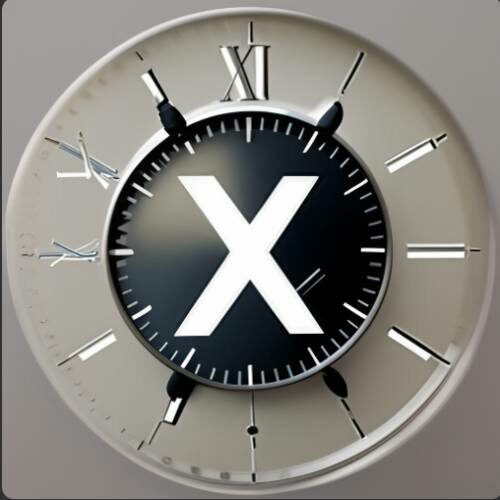
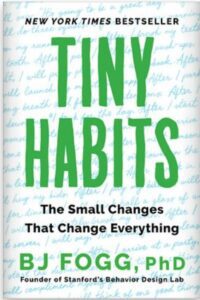
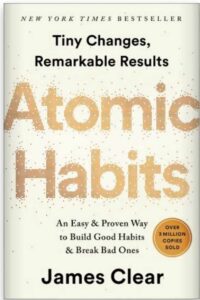
Eric, great article with several common-sense approaches to stop wasting time. It’s funny how some of the simplest changes to our daily habits can increase our productivity.
I used to waste so much time on tasks that were irrelevant to what I was trying to accomplish, and I found out, it was a form of procrastination. I was avoiding the tasks that were vital to completing the project.
I now have developed some great habits that keep me on track, and you have several listed in your article.
Furthermore, I have made two changes to my daily is a schedule that has gotten me to be way more productive. The first is every morning I asked myself what is my intention for the day, and where do I focus my attention? And second, I stay mindful of my intentions; and when I feel myself start to drift, I bring my focus back on the present task at hand.
I really enjoyed your article because it reinforced what I already know works for me to be successful.
Hi Terry,
As you mentioned, making small changes to our daily habits can have a lasting impact on our productivity. It’s amazing what we can do to make ourselves more efficient with our time.
When you make those changes, you realize how much time you’ve wasted before. That is the time you spend doing things that matter the most. A great example is focusing more time on growing your business.
The changes you made are helpful to those looking to build better habits. I’ll say you’re a great example to those who want to go in that direction.
I’ve gone in that direction as well, and it’s changed me for the better. So we share some things in common.
Thank you very much for sharing your detailed insights. They’re much appreciated, and helpful to those who need some guidance on creating better habits.
These are excellent tips, many of which I would not have thought of such as organizing one item when you enter a room. One of the things I already do is move my important emails into a project folder like you mentioned. I don’t want to have to hunt for the email later on. Creating folders within my email is one of the biggest time savers for me.
Hi Alicia,
One tip I do when reviewing my email is I move it to a “Later” folder. At times, there will be emails I cannot respond to or take care of the moment. My goal is to not have any emails in my inbox.
I never like having to hunt down any emails, as that can be a significant time-waster on my end. It helps when you’re determining which tasks to prioritize or not.
So what you’re doing is a smart strategy. It’s something I practice when checking email, and it’s better for making my time more efficient.
Thank you for sharing your thoughts- it’s much appreciated.